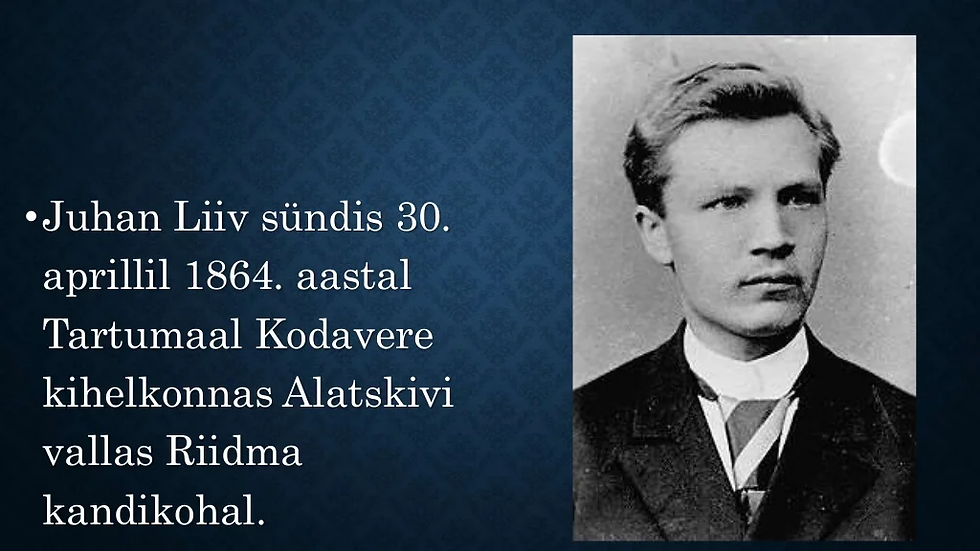Estonian winters were too long for Juhan Liiv. He wrote melancholic poetry, comparing the processes of nature with that of his own feelings – his poems look to have defined his life. Liiv died less than five years short of the declaration of independence of the country he yearned for. Thrown off a train for not having a valid ticket, he spent two weeks wandering home where he died of pneumonia, aged 49, on 1 December 1913.

Among a family friend Aino’s collection of books in Estonian was a handsome, hardbound copy of Juhan Liiv’s poetry, an anthology titled Sinuga ja sinuta, “With and without you”. I was immediately curious. Hundreds of poems, most of them short. Some of them quite simple (from today’s perspective), not unlike Lydia Koidula of an earlier generation; some having a strange potency:
“Axe: What value do you place on yourself / but I will chop you down
Forest: Then you remain without a stem / And then I will grow again”
If I can read Liiv’s language accurately, it can’t be complicated – yet his words cut deep. He shares with his readers his innermost feelings, and even if largely ignored during his lifetime, Liiv still stands tall today among Estonian poets.
So, who was Juhan Liiv? Wikipedia offers a good summary. Born in 1864 and raised near Alatskivi near the western shore of the peipsijärv, Lake Peipus, Liiv grew up in a poor farming household, the second youngest of eight children, three of whom died in infancy.
Education was important to the Liivs, and Juhan clearly saw himself as part of the national awakening, a select group of Estonians creating a vast output of literature in the Estonian language. His first short story, Vari or shadow, was also his most famous, and appeared in 1894. Fifteen years later an anthology of 495 poems was published.
“Many of Liiv's poems are dominated by a sense of gloom, probably brought on by his mental illnesses, poverty, and lack of human friendships,” Wikipedia says. “The few poems with a less ominous tone describe nature and Liiv's adoration for his country.”
Liiv battled with physical and mental illness throughout his life. He was for a time a psychiatric patient at a clinic in Tartu where he was diagnosed with schizophrenia. Apparently, he thought he was at various times a son of Tsar Alexander II, or of the king of Poland, or of the poetess Lydia Koidula. This did not prevent him writing poems like Cold (külm):
Pines practise in the cold
A spruce snaps, shivers in a dream
A blood-red dawn in the east …
Light from the north – a ball of fire is this!
An animal screams at dawn
Wolf, elk, roe deer groan
And wait for sunrise
Once upon a time the cold, it applauses
The forest frostbitten, deathly silence
A blood-red dawn in the east …
My daughter Olivia likens Liiv’s poetry to Japanese haiku in their powerful simplicity. In Liiv’s honour, the Alatskivi parish awards a poetry prize every year, on 30 April, his birthday.
Comments